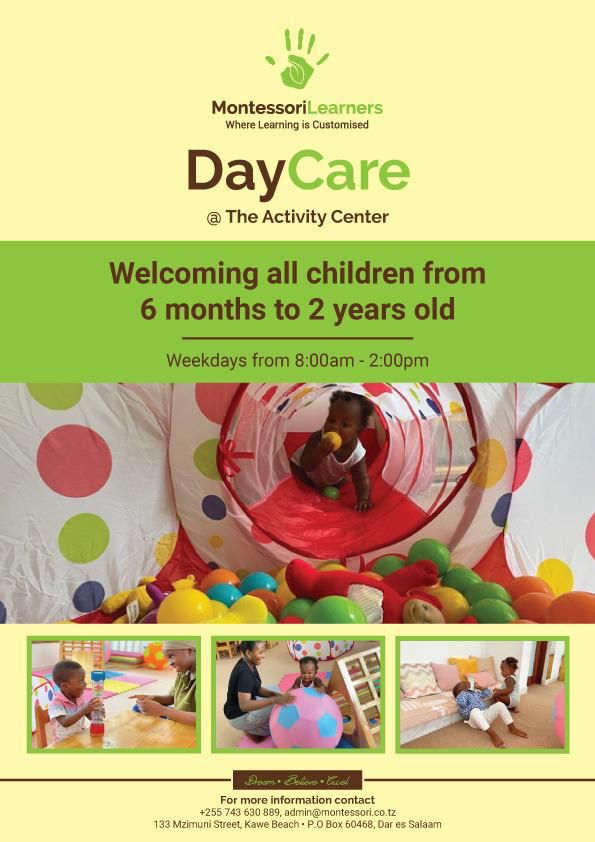Montessori Philosophy of Education.
The children learn in the Montessori classroom by ‘doing’. Dr Maria Montessori emphasised that “the hand forms the mind”. In order to learn, there must be concentration.All the learning tools in the Montessori classroom allows the children to reinforce casual impressions by inviting them to use their hands to learn and to build concentration. According to research, children gain seventy-five per cent (75%) of their knowledge before the age of three.
Dr Montessori said the child, at the age of birth to three, has an ‘absorbent mind’. This referred to the ability and ease with which young children learn, unconsciously, from the environment.
Concepts that are presented in concrete form (actually touching and manipulating the materials) make learning tangible for children and serve as touchstones in their memory for many years.
Key Characteristics of the Montessori Prepared Enviroment
- The teacher has an unobtrusive role in the classroom.
- The environment and method encourage self-discipline.
- The instruction is mainly individual one-to-one.
- There is a mixed-age grouping which encourages children to teach and help each other.
- They choose their own work and set their own learning pace.
- The child discovers concepts from self-teaching materials and is allowed to work as long as he/she wishes on a chosen project.
- The child discovers errors from the materials, which are self-correcting.
- The teacher recognises each child’s sensitive periods’.
- The child can work where he/she chooses, move around and talk at will, yet not disturb others.
- Multi-sensory materials for physical exploration are available.
- The child reinforces his/her own learning by repetition of work and internal feelings of success.

Our extracurricular activities expose kids to new interests and turns the aimless hours after school into productive learning time under one roof, here are some the benefits of our activities:
- Create a sense of belonging.
- Improve social skills.
- Provide academic support.
- Make learning more fun.
- Provide safety and supervision.Build confidence.
Lear more about Montessori Learners by Visiting their website - Tap or Click Here














